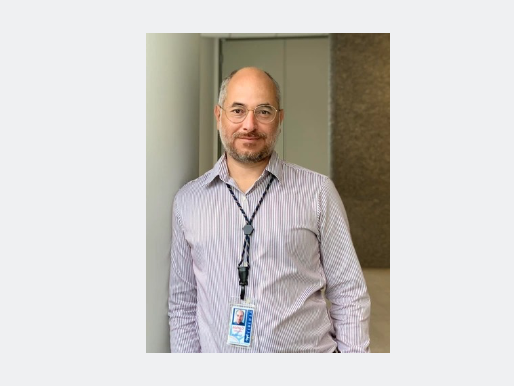Interpreter Spotlight: Meet Carlos Mendez
This is the fourth in a series of Liberty Language Services Blog posts highlighting the variety of careers available in the field of interpreting, and the variety of professional language specialists who work as interpreters.
How long have you been working as an interpreter?
I began working as an interpreter in 2012. First, I started as a volunteer and then a year later, I started working professionally.
Why did you choose this profession?
I had an idea about the field when I was studying English back in Mexico. One of my teachers was an interpreter for a private university and she told us it could be a career path for us. While in college getting a degree in Sociology, I worked as a freelance translator. But my first opportunity to work as an interpreter occurred when I moved to the U.S. in 2012.
How did you get started as an interpreter?
It was by luck. My wife (who is American) and I had moved to Providence, Rhode Island where she had a job teaching. While waiting for my work permit, I started looking for volunteering opportunities to keep myself busy and help in the community. I learned that a free clinic in Providence was looking for people to help with their Hispanic population, interpreting for their consultations. I chose that and the rest is history.
I liked it so much I pursued training, and took the 40-hour certification course in 2013. I work as a freelancer in medical clinics, hospitals and also in the community, in legal and education settings. There’s a great need in school settings helping parents communicate with teachers and administration.
Do you remember your first interpreting assignment?
Yes, I was very nervous. I had never done it, but fortunately the providers were aware that most of the volunteers interpreting there were not professionals, so they gave us time to look up words we didn’t know. I always carried a Spanish-English medical dictionary with me, a gift from my mother-in-law.
How do you prepare for your assignments?
I read about the topic when I know what it is going to be about, but you don’t always know what an assignment will cover. I try to be curious and research topics that have come up before or that I think might come up.
Do you recommend any app or tool that is helpful for new interpreters?
I use Linguee occasionally, it’s a very good app to verify translations in different contexts and regions. As well, it’s very handy to use good old fashioned pen and paper, especially in this new normal where we are all communicating on virtual platforms.
How do you develop and maintain your professional skills?
With practice. In the beginning I struggled to keep up with the pace. I started watching videos with exercises to improve my memory and practice skills with consecutive and simultaneous interpretation. Sometimes I find myself listening to something on radio or TV and practicing in my head. Although I already have my medical interpreter training certificate, I am interested in taking Liberty’s Bridging the Gap online course.
What do you think is the most important thing you should do to be a successful interpreter?
Be on time, be professional, polite and adhere to the protocols, but always remember that you are a human dealing with humans. Always try to be sensitive and kind.
What would you like changed or improved in the interpreting industry?
Well, it’s a very well-established industry. As a freelancer, there are numerous opportunities for professional development and networking.
What was the most memorable interpreting experience you’ve had?
I’ve had several memorable experiences, most involving people who have, against all odds, recovered from a terrible situation. On a personal level, I’ve found it very rewarding when I receive positive feedback, when someone tells me that I have done a great job. At the large hospitals where I often work, doctors and nurses are very glad we are there to help their patients communicate, especially during this challenging time of COVID-19. People are afraid and I like being able to ease their fears and help them communicate with the staff.
Working with Liberty Language Services has also been a great experience. They have been like family for me, so supportive and understanding when the COVID pandemic hit. I also appreciated the free PPE kits provided by Liberty so we could get back to working in-person.


Recent Comments